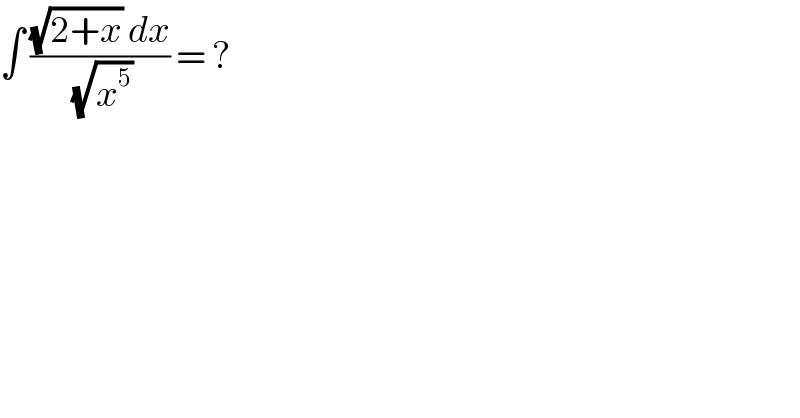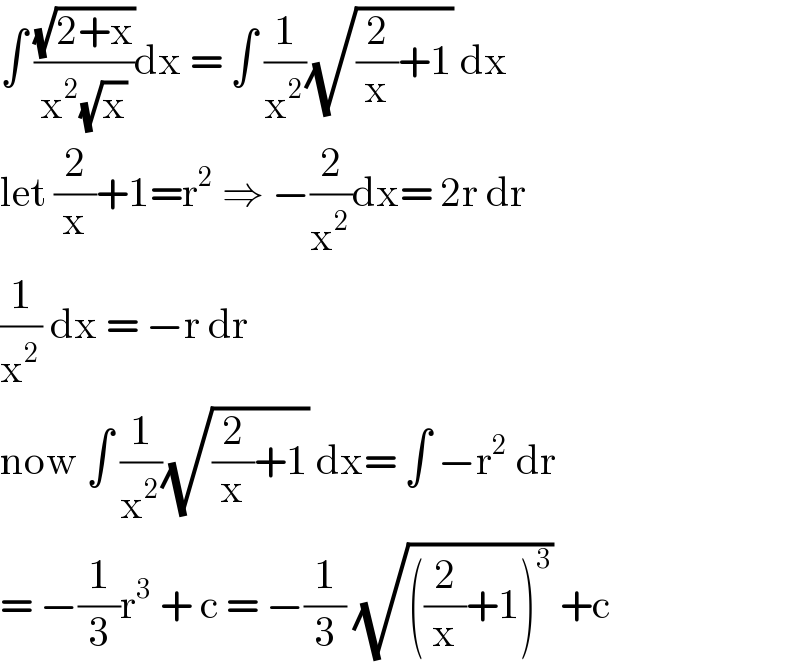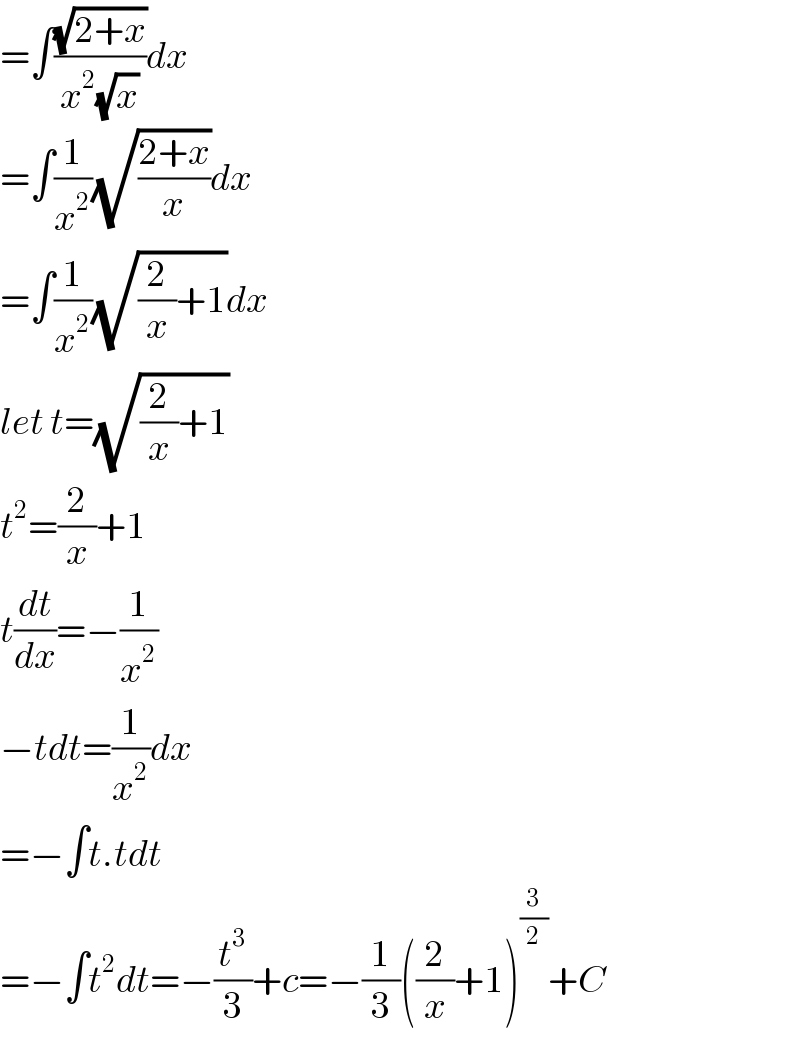
Question and Answers Forum
Question Number 77221 by john santu last updated on 04/Jan/20

Answered by jagoll last updated on 04/Jan/20

Commented by petrochengula last updated on 04/Jan/20

Commented by jagoll last updated on 04/Jan/20

Commented by john santu last updated on 05/Jan/20

Answered by petrochengula last updated on 04/Jan/20

